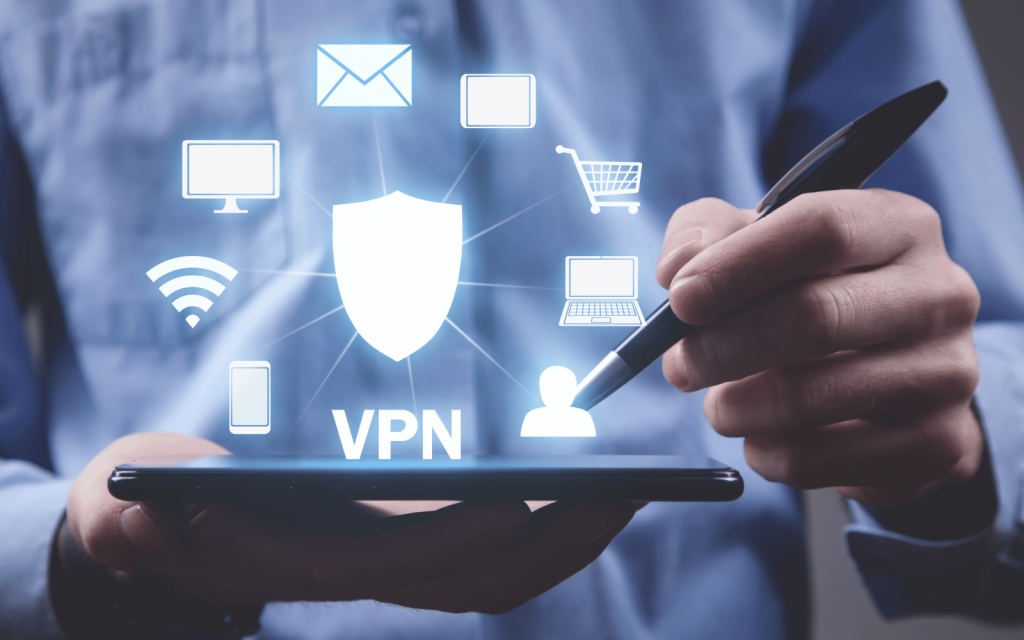As South Africans prep their passports for the UK, EU or some tropical destination this December, it’s time to update that packing checklist. We’re here to add one thing to that list you may not have thought about yet — a virtual private network (VPN).
We find ourselves in an increasingly digital world, where connectivity is paramount, but security concerns loom large. A VPN protects your data and privacy, especially when travelling to foreign lands or connecting to unsecured networks.
What is a VPN
A VPN can act as a guardian for your digital existence. Whether you’re sipping espresso at a café in Paris or navigating the bustling streets of Tokyo, having a VPN on your device encrypts your data and masks your location by establishing a secure tunnel between your device and the internet.
Originally designed to bypass regional restrictions for streaming services and overcome government censorship, the modern VPN is a comprehensive solution for protecting online activities.
This makes it a formidable challenge for hackers to swipe your passwords and sensitive information. Oh, and our favourite part — a VPN opens up access to websites that might be restricted in the country you’re visiting.
Neither here or there
In countries like Russia, China, and Iran, where VPNs face heavy restrictions or bans, and in places where governments keep a watchful eye on online activities, having a VPN becomes more than a convenience – it’s a necessity.
For instance, mainland China blocks access to YouTube therefore, if you’d like to continue streaming your favourite content while abroad, a VPN is your answer.
Recent events, like the Russia-Ukraine war, and the conflict between Israel and Palestine, underscore the importance of VPNs. Using the technology, those affected by internet restrictions can still access mass social media and media coverage in war-torn countries.
Not all good
However, it’s important to note that VPNs may limit connection speed, leading to a slightly slower online experience.
Real-time encryption, a key feature of VPNs, causes this speed dip. Despite this, the best VPNs aim to minimise latency under typical circumstances.
Users may experience these issues with specific websites, and some websites may even block the use of VPNs as they build more robust security into their apps. Some users have experienced difficulties accessing widely used apps like Facebook or Netflix while browsing on a VPN. This is due to a number of reasons. Blocked connections in the United Arab Emirates, for instance, are caused by the fact that the government forbids VPN use.
The best options for South Africans
Speedy boi: NordVPN
Key Features:
- It’s fast and has an extensive server network.
- No logs policy for increased privacy.
- Good security measures.
- 30-day money-back option.
TIP: The Standard plan is pretty affordable at $3 (R56) per month (a special price at the time of writing), and suits the VPN needs of most South Africans.
On a budget: Surfshark
Key Features:
- Budget-friendly VPN without compromising on security.
- Strict no-logs policy.
- Effectively bypasses geo-restrictions and government blocks.
- From $1.99 (R40) per month at the time of writing.
Quick and expensive: ExpressVPN
Key Features:
- Unblocks both South African and international streaming sites.
- Robust security protocols with a strict no-logs policy.
- Option for anonymous purchases.
- One of the more expensive options from $12.95 (R250) per month.
I’m a ghost: CyberGhost
Key Features:
- Affordable alternative with robust security features.
- Fast speeds and a strict no-logs policy.
- Simple site unblocking.
- From just $2.03 (R40) per month.
Make it custom: IPVanish
Key Features:
- No-logs service offering customization of IP addresses at specific intervals.
- Extensive server network.
- From $2.99 (R56) per month at the time of writing.




